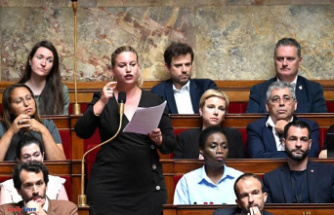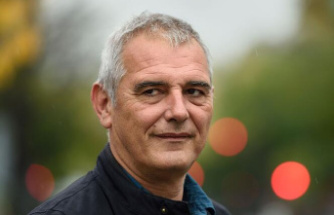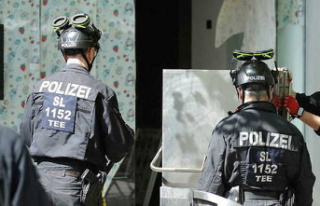A guard of the Revolution invites himself to the table of the writer François-Henri Désérable, and bombards him with questions: "Where are you from? What are you doing in Iran? What is your job ? The scene is all the more distressing as it takes place in Saqqez, the nerve center of protest in Iran. Hometown of Mahsa Amini, whose death in September 2022 for a poorly worn veil provoked the largest popular uprising the Islamic Republic has ever known, this locality in Iranian Kurdistan has since remained under surveillance by the security forces. That is to say if the presence on the spot of a French national is considered suspicious.
France, however, did everything to dissuade him. Just minutes before leaving for Tehran, the novelist received a call from the crisis center of the Ministry of Foreign Affairs urging him to abandon his project. "It is formally inadvisable, you hear me, formally inadvisable to go to Iran", alarmed the official on the other end of the line. "We have placed the whole territory in the red zone, there are hardly any French people left there. Those who are still there are in the process of returning, and those who are not returning, it is because they are in prison. »
The agent doesn't believe so well. Seven French nationals were then imprisoned in Iran (Fariba Adelkhah, Benjamin Brière, Cécile Kohler, Jacques Paris, Louis Arnaud, Bernard Phelan and a seventh whose name has not been made public, Ed). Accused of espionage, they are used by the Islamic Republic as bargaining chips in order to obtain pledges from France, and six of them are still languishing in prison (researcher Fariba Adelkhah was released last February, but still cannot leave the country, editor's note).
However, the obstacle of the border police crossed, the novelist becomes one of the rare Western observers to be able to testify to the revolt in progress in Iran. "At the beginning of November, in Tehran, half of the girls under thirty went out without the veil," he wrote in L'Usure d'un monde. A crossing of Iran (Gallimard). Some had replaced it with a cap, a beanie, a scarf that covered the bottom of their hair; but most had nothing. Contradicting the Iranian attorney general's announcement of the abolition of the morality police, Désérable says that his agents "were overwhelmed by the scale, the duration of the movement and seemed to have given up the game". "Those who revealed themselves, he adds, were not alone: many men encouraged them with a V for victory, and women in hijabs rewarded them with a smile, as if to thank them for a boldness they had not yet had. »
This salutary clarification does not prevent François-Henri Désérable from highlighting certain unknown massacres of the Iranian regime, such as that of "Blood Friday" in Zahedan, during which no less than 93 demonstrators were killed with weapons. of war by the Revolutionary Guards on September 30. "The problem, I'll tell you, is that on the one hand you have a people determined to drive a corrupt regime out of power, and on the other a corrupt regime determined to stay there," said on the spot. the author a witness to the drama. “And the men who make up this regime will stop at nothing, believe me. But neither do we. Insane on paper, François-Henri Désérable's bet to deliver a snapshot of Iranian society in full revolt is met with flying colors. But it took a hair's breadth for the French writer to join his six compatriots imprisoned in Iran.












